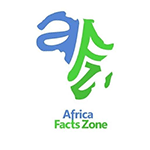2024 Africa Wealth Report By Henley & Partners

Africa’s economic landscape is undergoing a remarkable transformation, as evidenced by the 2024 Africa Wealth Report, published by Henley & Partners in collaboration with New World Wealth.
This detailed examination not only highlights the current state of wealth on the continent but also projects significant growth among high-net-worth individuals (HNWIs) over the next decade.
Africa’s Wealth in Numbers: A Comprehensive Overview
The latest findings reveal that Africa’s total investable wealth has reached an impressive USD 2.5 trillion. The continent’s millionaire population is set to witness a 65% increase by 2033, spotlighting an era of unprecedented wealth accumulation.
Current Wealth Distribution:
- HNWIs: There are currently 135,200 individuals with a net worth of USD 1 million or more.
- Centi-Millionaires: About 342 individuals are worth USD 100 million or more.
- Billionaires: The continent boasts 21 dollar billionaires.
Also Read: Africa’s Most Expensive Cities 2024
Leading Wealth Markets:
- South Africa remains the continent’s wealthiest country, despite a challenging past decade. It’s home to 37,400 millionaires.
- Egypt and Nigeria follow, with robust communities of millionaires and billionaires contributing significantly to their national economies.
- Kenya, Morocco, and Mauritius are also key players in Africa’s wealth landscape.
The Dynamic Growth of Wealth
Despite previous economic challenges, certain African nations are poised for explosive growth in their HNWI populations.
Top Growing Markets:
- Mauritius: Expected to see a 95% increase in millionaire population, thanks to its stable governance and favorable tax conditions.
- Namibia: Predicted to achieve over 85% growth, driven by both local opportunities and investment migration pathways.
- Morocco, Zambia, and Kenya: Each forecasted to experience significant growth rates of 80% or more.
Urban Wealth Hubs:
- Johannesburg: Currently Africa’s richest city with 12,300 millionaires.
- Cape Town: Set to possibly surpass Johannesburg by 2030 due to major corporate relocations and an influx of wealth.
Also Read: Africa’s Wealthiest Cities’ Africa’s Most Affluent Cities 2024
Strategic Insights from Experts
Justice Malala, a renowned South African political commentator, emphasizes that Sub-Saharan Africa is expected to be the second-fastest-growing region globally in 2024.
He notes, “The African Development Bank predicts that Africa will account for 11 out of the 20 fastest-growing economies this year.”
International Influence and Political Ascendancy:
- Global Alliances: African leaders are increasingly influential in global forums, with nations like Ethiopia and Egypt joining the BRICS grouping and the African Union securing a permanent seat in the G20.
- Foreign Investment: With heightened interest from global powers like Russia, China, the USA, and the EU, Africa is navigating a new political and economic landscape that offers both challenges and opportunities.
Future Wealth Centers and Prospects
Cities on the Rise:
- Cape Town and Johannesburg are competing closely for the title of Africa’s wealthiest city.
- Nairobi, Cairo, and Lagos continue to be significant centers of affluence.
- Emerging Hotspots: Cities like Kigali, Windhoek, and Marrakech are identified as future magnets for millionaires, projected to see wealth growth exceeding 85%.
Also Read: Africa’s Fastest-Growing Cities 2024
Conclusion
Africa’s wealth trajectory is on a remarkable upward trend, driven by robust economic growth, strategic international relationships, and an evolving political landscape.
As the continent continues to develop and integrate into the global economy, the potential for wealth creation and investment opportunities expands, making Africa a key player on the world stage.
FAQs About Africa’s Wealth Landscape
- What factors contribute to the rapid growth of wealth in Africa?
- Economic diversification, stable political environments, and favorable investment policies are major contributors.
- Why is Mauritius experiencing such high growth in HNWIs?
- Mauritius offers political stability, a favorable tax regime, and attractive investment opportunities, making it appealing to wealthy investors.
- How does foreign interest affect Africa’s economic growth?
- Foreign investments bring in capital, create jobs, and often lead to infrastructure improvements, boosting economic growth.
- What challenges do Africa’s wealthy face?
- Political instability, economic volatility, and issues related to wealth management and succession planning are significant challenges.
- Which sectors are attracting the most investment in Africa?
- Key sectors include technology, real estate, natural resources, agriculture, and renewable energy.
- How important are geopolitical relationships for Africa’s future wealth growth?
- Very important, as they influence trade policies, foreign investment flows, and economic partnerships.
- What role do urban centers play in Africa’s wealth dynamics?
- Urban centers are crucial as they serve as hubs





